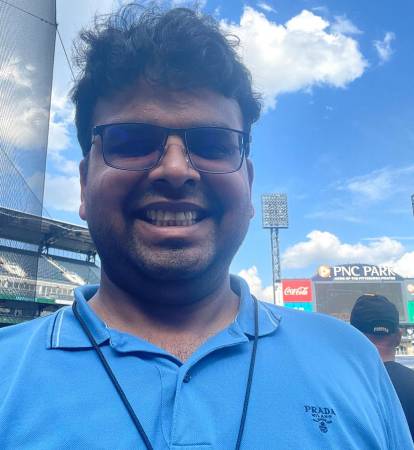Seminar
Generative and Animatable Radiance Fields
Abstract: Generating and transforming content requires both creativity and skill. Creativity defines what is being created and why, while skill answers the question of how. While creativity is believed to be abundant, skill can often be a barrier to creativity. In our team, we aim to substantially reduce this barrier. Recent Generative AI methods have simplified the problem for 2D [...]
Generative modeling: from 3D scenes to fields and manifold
Abstract: In this keynote talk, we delve into some of our progress on generative models that are able to capture the distribution of intricate and realistic 3D scenes and fields. We explore a formulation of generative modeling that optimizes latent representations for disentangling radiance fields and camera poses, enabling both unconditional and conditional generation of 3D [...]
Estimating Robustness using Proxies
ABSTRACT: This talk covers some of our recent explorations on estimating the robustness of black-box machine learning models across data subpopulations. In other words, if a trained model is uniformly accurate across different types of inputs, or if there are significant performance disparities affecting the different subpopulations. Measuring such a characteristic is fairly straightforward if [...]
Latent-NeRF for Shape-Guided Generation of 3D Shapes and Textures
Abstract: In this talk, I will focus on presenting my recent work which will be presented at CVPR in less than two months. Text-guided image generation has progressed rapidly in recent years, inspiring major breakthroughs in text-guided shape generation. Recently, it has been shown that using score distillation, one can successfully text-guide a NeRF model to [...]
Navigating to Objects in the Real World
Abstract: Semantic navigation is necessary to deploy mobile robots in uncontrolled environments like our homes, schools, and hospitals. Many learning-based approaches have been proposed in response to the lack of semantic understanding of the classical pipeline for spatial navigation, which builds a geometric map using depth sensors and plans to reach point goals. Broadly, end-to-end [...]
Going Beyond Continual Learning: Towards Organic Lifelong Learning
Abstract: Supervised learning, the harbinger of machine learning over the last decade, has had tremendous impact across application domains in recent years. However, the notion of a static trained machine learning model is becoming increasingly limiting, as these models are deployed in changing and evolving environments. Among a few related settings, continual learning has gained significant [...]
Predictive Scene Representations for Embodied Visual Search
Abstract: My research advances embodied AI by developing large-scale datasets and state-of-the-art algorithms. In my talk, I will specifically focus on the embodied visual search problem, which aims to enable intelligent search for robots and augmented reality (AR) assistants. Embodied visual search manifests as the visual navigation problem in robotics, where a mobile agent must efficiently navigate [...]
Special RI Seminar
Title: Testing, Analysis, and Specification for Robust and Reliable Robot Software Abstract: Building robust and reliable robotic software is an inherently challenging feat that requires substantial expertise across a variety of disciplines. Despite that, writing robot software has never been easier thanks to software frameworks such as ROS: At its best, ROS allows newcomers to assemble simple, [...]
Generating Beautiful Pixels
Abstract: In this talk, I will present three experiments that use low-level image statistics to generate high-resolution detailed outputs. In the first experiment, I will use 2D pixels to efficiently mine hard examples for better learning. Simply biasing ray sampling towards hard ray examples enables learning of neural fields with more accurate high-frequency detail in less [...]
Towards Reliable Computer Vision Systems
Abstract: The real world has infinite visual variation – across viewpoints, time, space, and curation. As deep visual models become ubiquitous in high-stakes applications, their ability to generalize across such variation becomes increasingly important. In this talk, I will present opportunities to improve such generalization at different stages of the ML lifecycle: first, I will [...]








